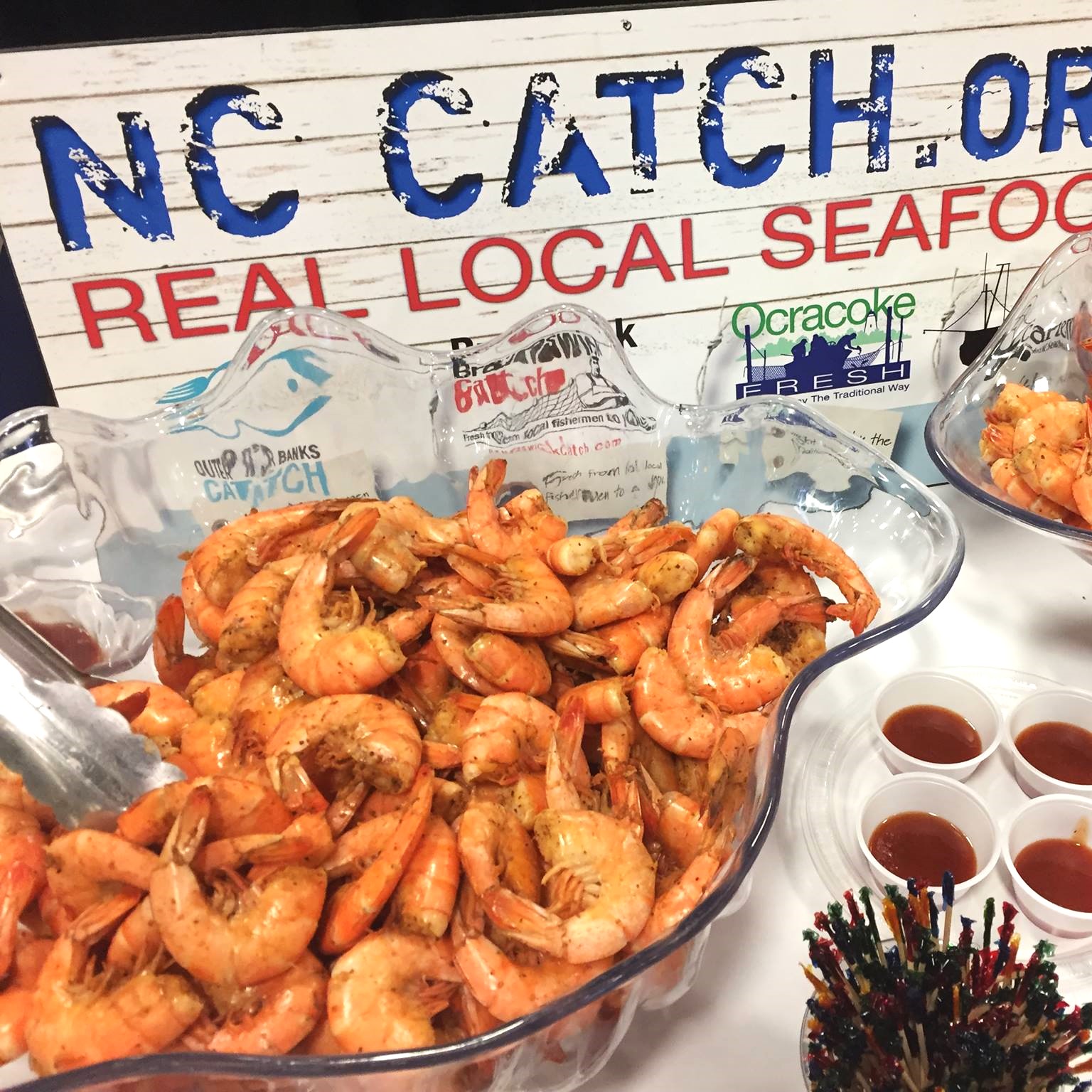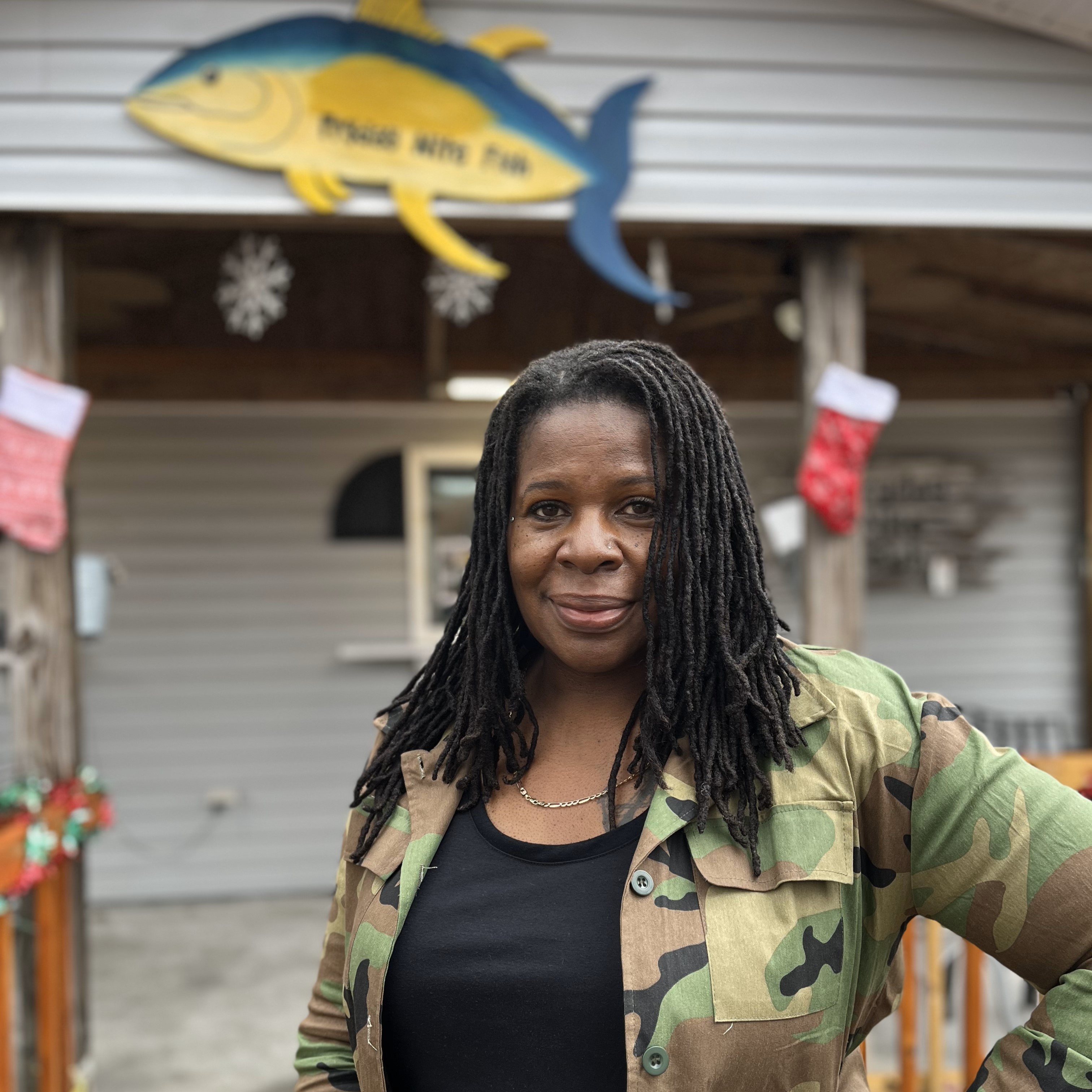How a lawsuit in N.C. tried to make sure you never eat local shrimp again

The lawsuit was just one of many increasingly extreme attempts to cut the local seafood supply by abolishing or severely restricting commercial fishing in N.C.
By Jess Hawkins
Seafood lovers in North Carolina should be aware of a recent lawsuit that would have blocked public access to fresh shrimp harvested by our state’s commercial fishermen. The lawsuit was just one of many attempts to diminish the local seafood supply by abolishing or severely restricting commercial fishing in North Carolina. I observe these increasing efforts with great concern not just as someone who eats seafood but also as a professional fisheries scientist and coastal issues educator.
The 4th Circuit of the U.S. Court of Appeals recently rejected the lawsuit, which argued that it should be illegal for N.C. shrimp trawlers to discard fish from their nets into the water. The lawsuit also sought to make trawling in Pamlico Sound illegal unless fishermen had a permit from the U.S. Environmental Protection Agency or its state proxy. The plaintiffs claimed that discharging fish and disturbing sediment with trawl nets violated the Clean Water Act, which prohibits discharging pollutants into U.S. waters.
To the relief of commercial fishermen, the 4th Circuit ruled unanimously against the plaintiffs. “Returning bycatch to the ocean is not discharging a pollutant, so throwing it overboard without a permit is not forbidden by the act,” the judge said. He also noted that sediment kicked up by trawl nets did not qualify as pollution discharged into the water. The court also noted that the plaintiffs’ claims would have also required recreational fishermen to get an environmental permit before releasing fish back to the water and that would have substantial impacts on the public.
Anxious shrimpers waited three years for the litigation to run its course and, of course, they incurred substantial legal fees to combat the claims.
North Carolina seafood consumers should note this particular lawsuit because most of the shrimp harvested and sold in the state come from trawlers fishing in Pamlico Sound. Shrimp is North Carolina’s most popular seafood and the most consumed seafood in the United States. Had the lawsuit been successful it would have had significant impacts on everyone who eats N.C. shrimp. Efforts to abolish or severely restrict commercial fishing in North Carolina would lead to no local seafood on your table.
I’ve watched attempts to severely restrict or abolish certain commercial fishing practices become more numerous and extreme over my 30 years as a coastal fisheries biologist, especially in the last few years. Much misinformation about North Carolina’s commercial fishing fleet fuels efforts.
I know how strictly regulated commercial fishing is in North Carolina. I helped develop fisheries conservation policies for the last 15 years of my career at the N.C. Division of Marine Fisheries. I was honored to serve on the N.C. Marine Fisheries Commission, the rulemaking body that regulates fishing in our state. During the 10 years after my retirement, I’ve been teaching people about coastal resources. I have done that work at the North Carolina Aquarium and at two of the state’s university marine labs.
Lawsuits such as the 4th Circuit case aren’t the only tactics employed to block your access to local seafood.
For example, proposed legislation to designate certain fish “gamefish” would have made it illegal to sell those fish. Gamefish-status proponents argued that certain species needed protection from overfishing, but they made that claim even when science showed that targeted fish populations were healthy.
Additionally, there have been calls to ban some types of commercial fishing nets, again, even when science has not supported such gear restrictions. Already, vast waters have been closed to certain types of commercial fishing gear in North Carolina. But new proposals demand even greater expanses of key shrimping waters be closed.
On top of all that, substantial increases in license fees for commercial fishermen have been proposed to slash the numbers of hard-working families making their living on the water.
I could go on.
The number of N.C. commercial fishermen who sell seafood is less than 2,500. That may sound like a lot, but the number has been steadily declining over the last 15 years. Commercial seafood landings in North Carolina are at the lowest level since the 1950s. Meantime, recreational landings and recreational fishing trips have increased since the 1990s. An estimated 1.5 million people fish recreationally along the state’s coast. North Carolina is one of the top states in terms of the number of recreational fishing trips and numbers of fish caught.
Attempts to further limit your access to seafood by limiting commercial fishing come even though the United States has one of the strongest commercial fishery conservation policies in the world. And North Carolina has one of the most comprehensive fisheries management programs in America. Our state is one of a few that prohibits overfishing by law and that is required to develop and implement fisheries management plans based on science. Bottom line: Fisheries in the United States and North Carolina must be sustainably managed by law. As a result, commercial fishing is one of the most regulated businesses in the country.
Healthy, local seafood on your plate matters. The United States is the second-highest consumer of seafood in the world and seafood demand is growing. Research increasingly shows that seafood is a nutritious source of protein. Experts recognize that sustainable seafood production helps address food security issues. In North Carolina, one in six children experiences malnutrition or hunger. Tourism experts note that when people visit our coastal areas, they expect local seafood at restaurants. Yet, 70% to 85% of the seafood we eat in America is imported. Only 1% to 2% of that imported seafood is inspected for safety.
North Carolina’s vast coastal waters, the inland sea that is Pamlico Sound, the wide variety of edible seafood harvested off our coast and the long history of commercial fishing here make the state truly unique along the East Coast. Fishing and farming have been cornerstones of local economies since at least the 1700s. Most commercial fishing operations are small family businesses. Those 2,500 people who fish for a living help put healthy food on the tables of North Carolina’s 10.5 million residents and millions more across the country who recognize the high quality of domestic seafood.
Many people who eat seafood do not live near the coast. They can’t fish for themselves. Not everyone can afford a boat to motor offshore. Most people depend on their community’s markets to supply local seafood. And they, like everyone in America, have a right to that seafood.
My hope is that everyone who loves steamed oysters, fried shrimp, fish sandwiches, crab cakes and all the other dishes that define our state’s seafood bounty understand that commercial fishermen and the North Carolina seafood industry need the public’s support.
Stay aware of efforts to block your access to local seafood. When you choose seafood, insist on local. Be informed. Get involved. Learn more from seafood education groups such as NC Catch, Carteret Catch and the N.C. Department of Agriculture and Consumer Services’ Got to Be NC Seafood campaign. Most of all, speak up for your right to the local North Carolina seafood.





